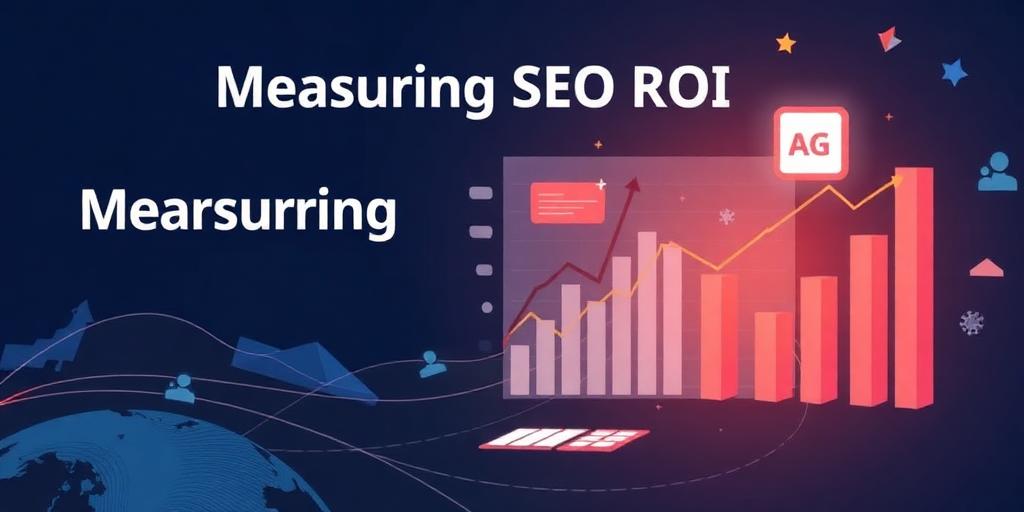Measuring the return on investment (ROI) of your Search Engine Optimization (SEO) efforts is crucial for understanding the true value of your digital marketing strategy. However, quantifying SEO ROI can be complex, requiring a clear understanding of key performance indicators (KPIs), attribution models, and the tools available to track progress.
Understanding SEO ROI SEO ROI measures the revenue or value generated from your SEO investments compared to the costs incurred. It helps determine whether your SEO strategy is effective and provides insights for optimizing future campaigns.
Key Performance Indicators (KPIs) for SEO ROI
- Organic Traffic: The number of visitors reaching your website through organic search results.
- Keyword Rankings: Your website's position in search engine results pages (SERPs) for target keywords.
- Conversion Rate: The percentage of organic visitors who complete a desired action, such as making a purchase or filling out a form.
- Revenue: The total revenue generated from organic traffic.
- Cost Per Acquisition (CPA): The cost of acquiring a customer through SEO efforts.
- Click-Through Rate (CTR): The percentage of users who click on your website's search result.
Calculating SEO ROI SEO ROI is calculated using the following formula:
ROI = (Revenue - Investment) / Investment * 100
To accurately calculate SEO ROI, you need to track both the revenue generated from organic traffic and the costs associated with your SEO efforts.
Costs Associated with SEO
- SEO Tools: Subscription fees for tools used for keyword research, rank tracking, and site audits.
- Content Creation: Costs for creating high-quality, SEO-optimized content.
- Link Building: Expenses for acquiring backlinks from reputable websites.
- Technical SEO: Costs for optimizing your website's technical aspects, such as site speed and mobile-friendliness.
- Agency Fees: Payments to SEO agencies or consultants.
Attribution Models Attribution models determine how credit for conversions is assigned to different touchpoints in the customer journey. Common attribution models include:
- First-Touch Attribution: Assigns 100% of the credit to the first touchpoint.
- Last-Touch Attribution: Assigns 100% of the credit to the last touchpoint.
- Linear Attribution: Distributes credit evenly across all touchpoints.
- Time-Decay Attribution: Assigns more credit to touchpoints closer to the conversion.
- Position-Based Attribution: Assigns a percentage of the credit to the first and last touchpoints, with the remaining credit distributed among the other touchpoints.
Tools for Measuring SEO ROI
- Google Analytics: Tracks website traffic, user behavior, and conversions.
- Google Search Console: Monitors your website's performance in Google search results.
- SEMrush: Provides keyword research, rank tracking, and site audit tools.
- Ahrefs: Offers backlink analysis, keyword research, and competitor analysis tools.
- Moz: Provides SEO tools for keyword research, rank tracking, and site audits.
Tips for Improving SEO ROI
- Set Clear Goals: Define specific, measurable, achievable, relevant, and time-bound (SMART) goals for your SEO efforts.
- Focus on High-Value Keywords: Target keywords with high search volume and commercial intent.
- Create High-Quality Content: Produce informative, engaging, and SEO-optimized content.
- Build High-Quality Backlinks: Acquire backlinks from reputable websites in your industry.
- Monitor and Analyze Your Results: Regularly track your KPIs and make adjustments to your strategy as needed.
- Optimize User Experience: Ensure your website is user-friendly, mobile-friendly, and fast-loading.
By understanding the key metrics, costs, and tools involved in SEO, you can accurately measure your ROI and make informed decisions to optimize your digital marketing strategy. Measuring SEO ROI is not just about numbers; it's about understanding the value SEO brings to your business and using that knowledge to drive growth.









